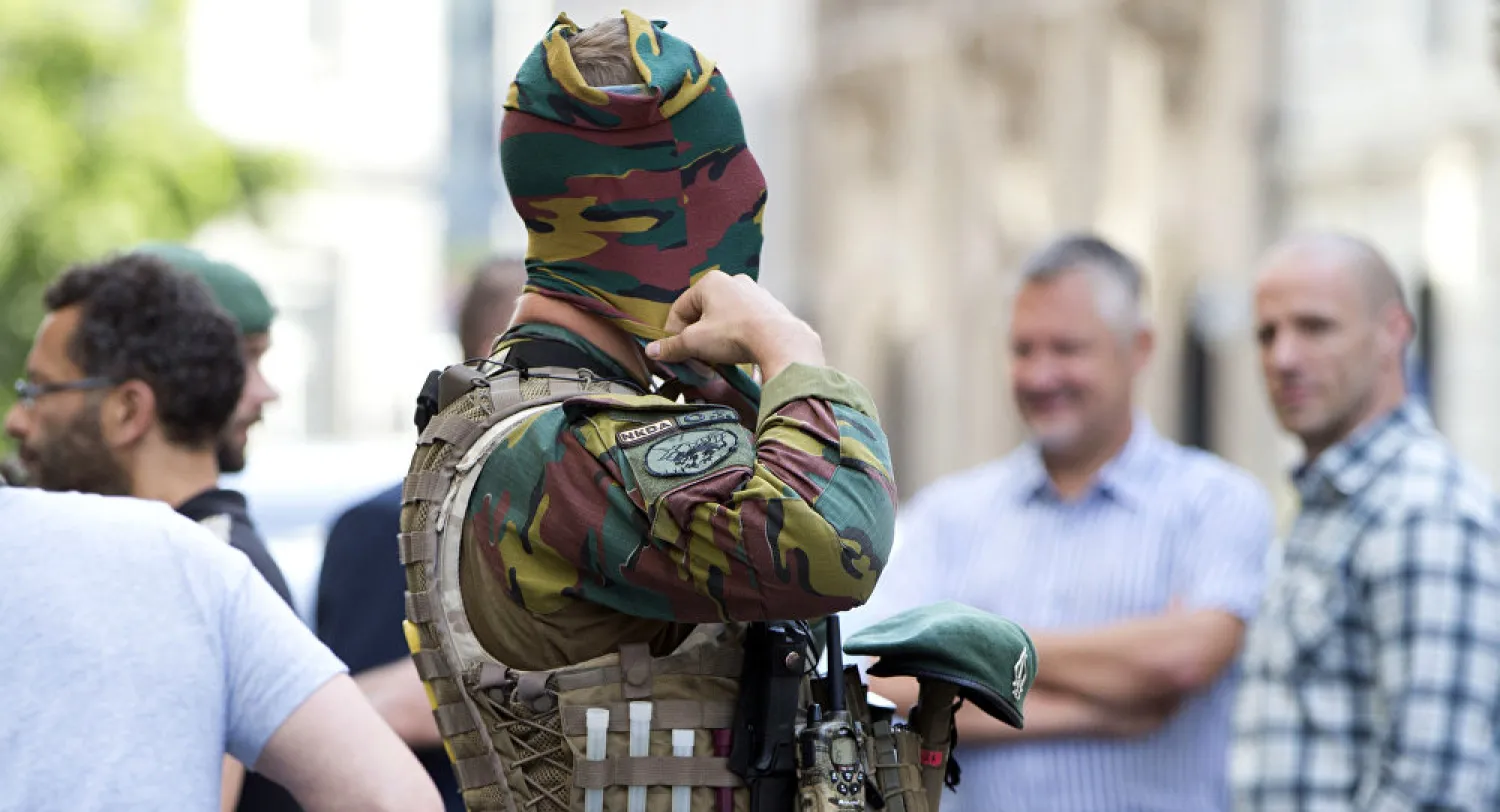Green army trucks are rumbling across the cobbled streets of Brussels. Stiff-spined soldiers are patrolling the Champs-Elysees in Paris. Italian troops are guarding the Colosseum. And critics say the years-long deployments at home are sapping the ability of these militaries to fight wars.
Taken together, the domestic deployments — to guard against terrorism — are among the largest in Western Europe since World War II. They come as European militaries are tapped to address an unusually wide range of challenges at once: a resurgent Russia, grinding conflicts in the Middle East, migration across the Mediterranean and smaller wartime deployments far from their borders.
Confronted by terrorism, European leaders rushed their armies onto their streets in the aftermath of attacks starting in 2015. Although advocates say the deployments help bolster security, the peacetime duty has stretched forces thin.
Until recently, 40 percent of Belgium’s combat-ready soldiers were devoted to domestic guard duty. Some officers worry that the lack of time to practice warfare means basic skills are getting rusty. In France, the former leader of the military said last month that he quit in July in part to protest that his forces were “overheating.”
President Trump has pressed NATO allies to commit more toward their own defense and to international missions, but the domestic deployments have made that a challenge. The latest sign came last month at a meeting of defense chiefs in Brussels, when the alliance fell short on pledges toward the NATO training operation in Afghanistan.
In Belgium, a country of 11 million people, military leaders say their troops are feeling the strain.
“I had machine gunners with the rifle section who didn’t fire a machine gun in 16 months because they had become riflemen,” said Maj. Gen. Marc Thys, commander of Belgium’s land forces. “It’s like asking our national team that hasn’t played a game of soccer all year to go to the world championships. It doesn’t work.”
Until October, 1,250 Belgian soldiers were deployed across the country, guarding grand boulevards, train stations and other crowded public places that make tempting targets. The intention was to increase public safety and to give police officers more freedom to do investigative work rather than tie them up on guard duty.
The domestic deployments came as European nations struggled to find a way to protect themselves against attacks in a new era of terrorism strategies. Some recent ISIS-inspired strikes used explosives and required large networks that could be disrupted through aggressive counterterrorism work, but other attacks were as simple as renting a truck and plowing it into a crowd.
Proponents of the military approach say that such attacks can be prevented by quick-thinking soldiers. They point to June’s attempted attack in the Brussels Central railway station, where soldiers patrolling the platforms shot dead a suspected bomber after he set off a small explosive that failed to hurt anyone.
“We weren’t ready for the threats that we were facing,” Belgian Defense Minister Steven Vandeput said about the aftermath of the 2015 terrorist attacks in Paris. Both the January Charlie Hebdo newspaper attack and the November Bataclan nightclub attack that year had Brussels connections, and authorities were searching for a quick solution.
“After November, the threat was high and at the same time police need to do police work,” Vandeput said. “If we’re not able to contribute to our defense, how can we contribute to others’ defense?”
France also deployed soldiers to its streets following the terrorist attacks and has faced similar challenges. Italian troops have been deployed since 2008. Britain made such deployments an option this year, but it has done so sparingly. In the United States, federal law generally forbids military deployments for law enforcement purposes, although state National Guards have more flexibility when commanded at a state level.
Germany has also been struck repeatedly by small-scale terrorist attacks, and its Parliament recently considered a measure to allow the army to be used domestically. That would have been a significant step because the country’s World War II history has made lawmakers wary of using their military at home. In the end, the legislature took no action.
In Belgium, the soldiers do not have the power to make arrests or investigate crimes. Advocates say their powerful rifles serve as a deterrent as they walk through crowded weekend markets or stand watch at train stations during rush hour.
The Washington Post









